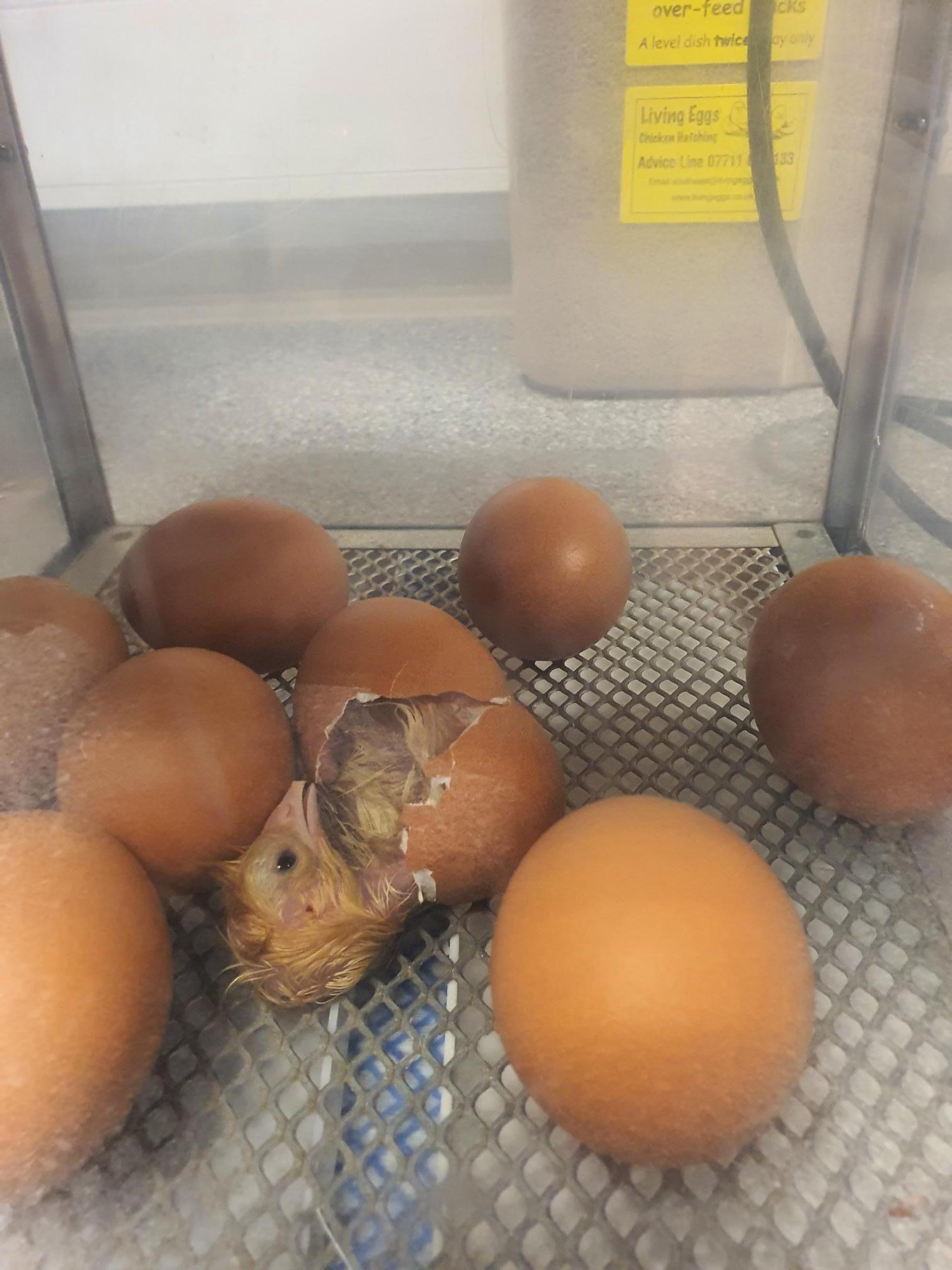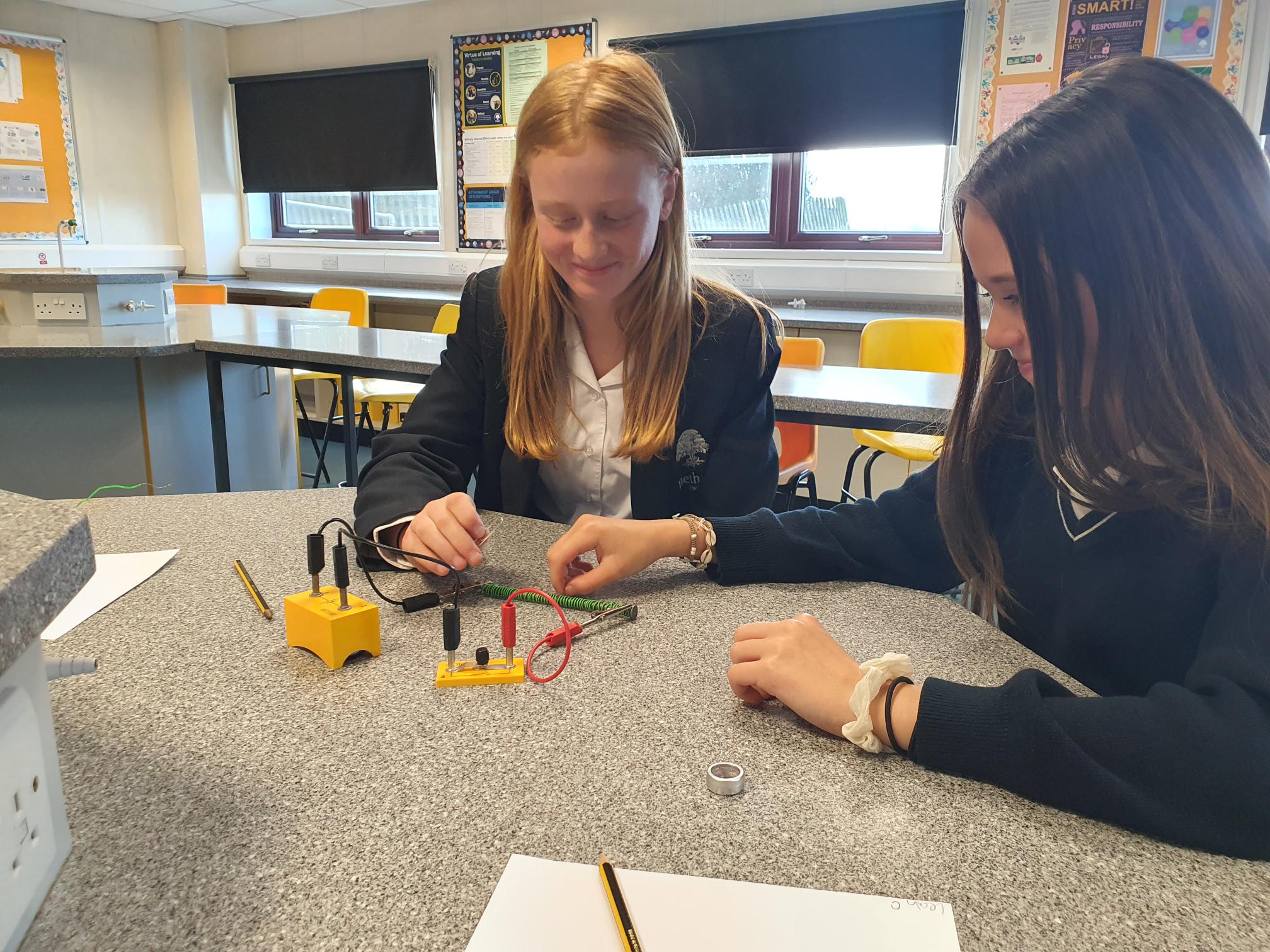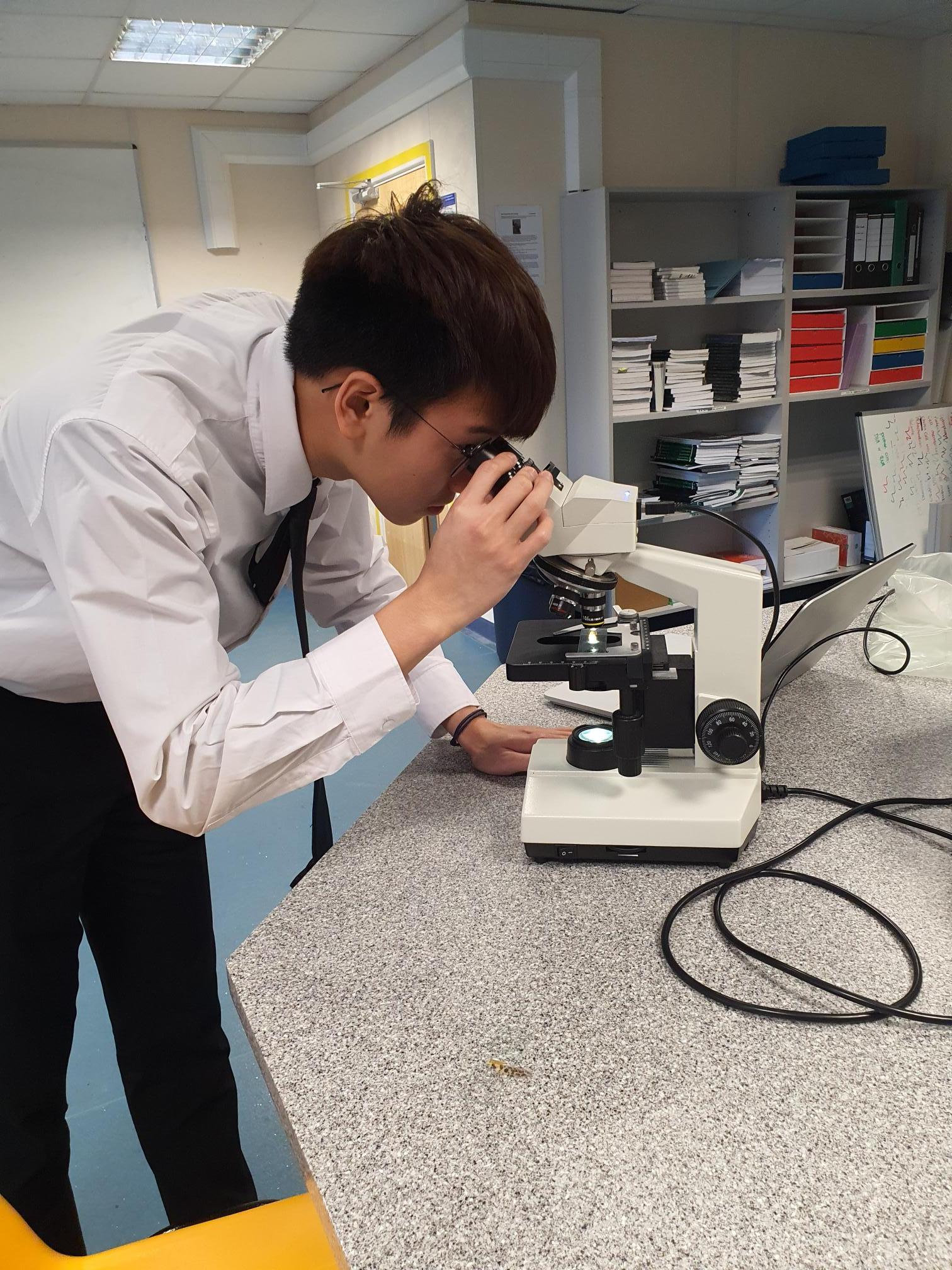
Home / Latest News /
The latest Bethany School blog has been written by Mr Thomas, Head of Science, who speaks about pupils’ passion for science, the need for actively engaging practical lessons and ponders the question, ‘will the affinity for screens ever beat enthusiasm for practical work?’
At Bethany, science is everywhere! It is in the food we eat in the school canteen, the water we drink, the ground we trample on and permeates all aspects of our lives. We are a package of science ourselves and science is us! It is for this scientific entanglement that Bethany pupils spend a good measure of time carrying out practical work within the science department.
There is debate in the media about whether school pupils should be doing experiments considering that all the discoveries have already been completed. It is further argued that pupils spend an enormous amount of time confirming laws of physics, biology and chemistry, like confirming that a tree grows towards the sky. This is far from the truth. To answer this question, please consider a candle. The scientists who designed the candle thought there was nothing else that could overthrow it; their invention was the best. Did they ever think that a light bulb would be possible? No! Didn’t Einstein’s relativity overthrow Newtonian physics? It is for these reasons that Bethany pupils have zest and zeal for hands on science experiments. For example, each year, the department hosts the Happy Chicks Project, where the department receives chicken eggs to incubate and hatch. The pupils love to cuddle the chicks, and they also learn about farming and looking after animals at school as they cuddle. According to our Bethany scientists, the lifecycle of a chick is approximately 21 days. Quickly upon arrival to the school, the chicks started hatching; some pupils were lucky enough to see it in action and learn from observing rather than reading about it in textbooks.
 We now live in a world of screens that stick. Our science experiments are sticky too and foster a lifelong love of science Our pupils are inquisitive and observant. They explore new horizons in science. As they do the practical work, Bethany scientists ask new questions that nudge reluctant scientists to be inquisitive. Would Newton’s laws of motion have been discovered if the ancient scientists had spent more time on their mobile phone screens? Is global warming happening or it is imagined? The science department has access to data-loggers that help pupils to investigate the greenhouse effect and relate what is happening on a small scale to global warming.
We now live in a world of screens that stick. Our science experiments are sticky too and foster a lifelong love of science Our pupils are inquisitive and observant. They explore new horizons in science. As they do the practical work, Bethany scientists ask new questions that nudge reluctant scientists to be inquisitive. Would Newton’s laws of motion have been discovered if the ancient scientists had spent more time on their mobile phone screens? Is global warming happening or it is imagined? The science department has access to data-loggers that help pupils to investigate the greenhouse effect and relate what is happening on a small scale to global warming.
Our learners master life skills through practical science experiments. Lifelong skills such as recording data, adapting experimental procedures, making decisions, drawing conclusions and solving problems are etched in our science laboratories. For example, in recent practicals, pupils compared the effect of iron cores in a coil of wire wrapped around an iron nail. To gain a better understanding of a fish’s respiratory system, pupils were tasked with a fish head dissection. Bethany pupils successfully dissected the fish head, to gain access to the fish’s gills, where they were able to cut away a few gill filaments. After washing the filaments in distilled water, they were inspected under a microscope. These are true future surgeons!
 Some experiments are messy and some are explosive. When pupils get to handle the equipment they make even deeper observations. The experiments will make the pupils’ understanding last longer. To become an accomplished scientist requires one to have curiosity and the desire to learn. For anyone to become an expert in science, they must practice, and practice! A scientist must be prepared to go above and beyond the tasks that have been delegated to them.
Some experiments are messy and some are explosive. When pupils get to handle the equipment they make even deeper observations. The experiments will make the pupils’ understanding last longer. To become an accomplished scientist requires one to have curiosity and the desire to learn. For anyone to become an expert in science, they must practice, and practice! A scientist must be prepared to go above and beyond the tasks that have been delegated to them.
 Bethany science pupils are good at investing in themselves. They know that the learning journey for one to become a scientist is long and not always easy. Hours of deliberate practice are required to transition from novice to expert.
Bethany science pupils are good at investing in themselves. They know that the learning journey for one to become a scientist is long and not always easy. Hours of deliberate practice are required to transition from novice to expert.
A good scientist develops work discipline and dedication that others want to emulate. When you are good at your work, others will notice and the Science department does this well through practical work. Our remarkable laboratories are the anvils on which future Elon Musk’s are nurtured!
Mr Thomas
Head of Science